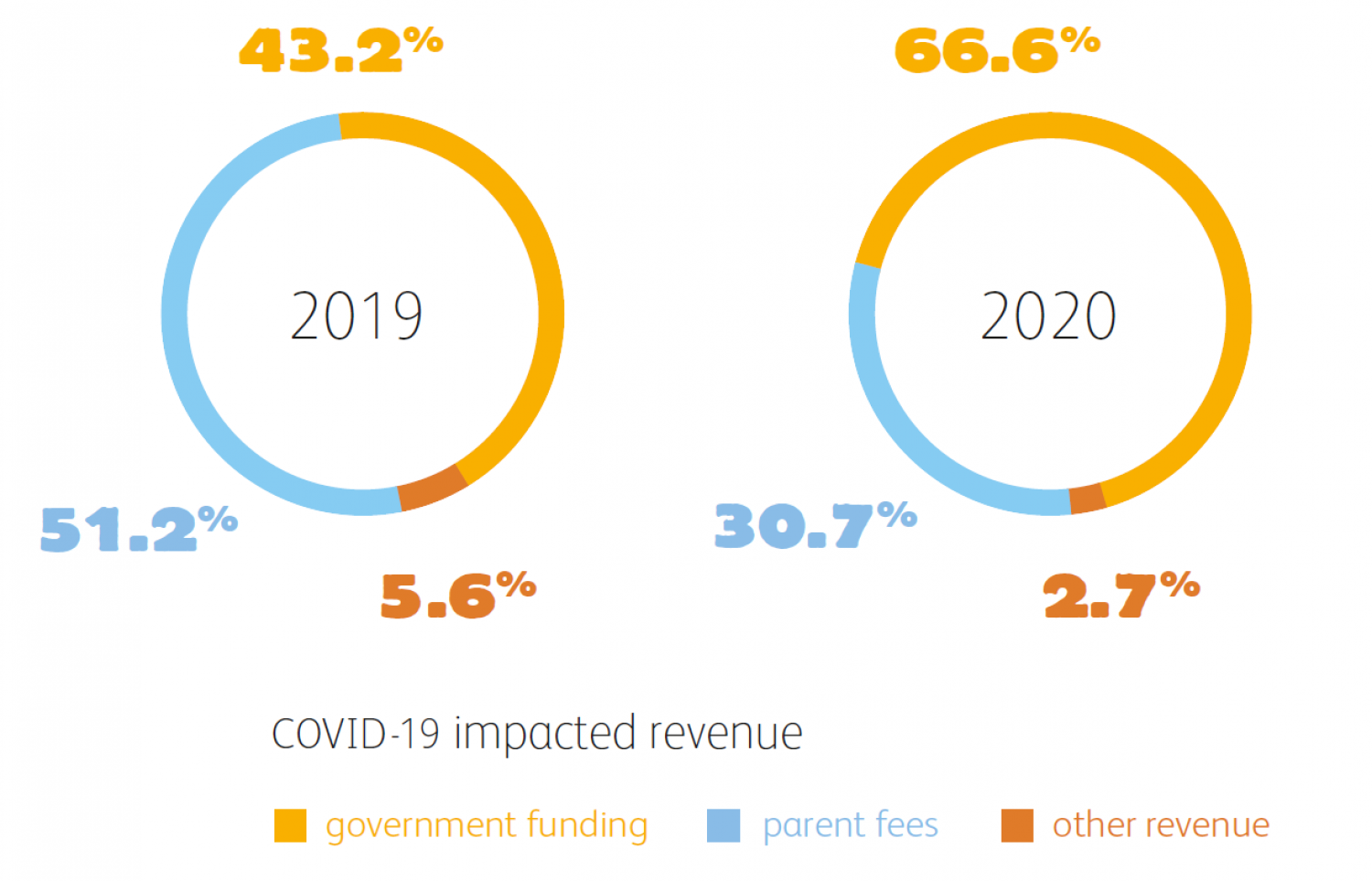Along with the pandemic, 2020 brought with it a range of COVID-19 specific funding and subsidies for businesses.
Within the early childhood sector, this included fee subsidies, and in some cases ‘free fees’ for families, so perhaps it is no surprise that our finances looked quite different in 2020.
Was KU entitled to JobKeeper and/or special COVID-19 funding in 2020?
Yes. KU was able to access JobKeeper funding to support our workforce throughout the pandemic. This enabled us to retain our valuable permanent workforce, and our team of KU casuals, who continued to work in our centres throughout.
KU, and KU families, were also able to access a range of early childhood specific COVID-19 funding programs and fee subsidies, provided by Commonwealth and State Governments.
KU was able to apply for JobKeeper to reduce the negative financial impact on the business resulting from parents removing their children out of childcare due to job losses, loss of income, change in family dynamics and other factors brought about by COVID-19. Staff were informed about this development and kept abreast of changes to JobKeeper that affected their individual circumstances as well as the sector. KU is particularly proud of our casual staff who continued to work whilst receiving JobKeeper. Many casuals in the early childhood education and care sector did not continue to work during COVID-19, and the fact that KU’s casual staff continued to work is a testament to the long-term relationships KU cultivate with our staff, and also the fact that staff value KU’s unwavering commitment to their safety and wellbeing.
How did KU use the JobKeeper and COVID-19 funding?
Despite our centres remaining open and providing education and care throughout the pandemic, many families understandably chose to keep their children home. Unable to charge fees for COVID-19 absences, this significantly impacted our revenue from parent fees.
Receiving JobKeeper and COVID-19 funding for early childhood services meant that KU was able to retain, and fully pay, our workforce.
The funding also enabled to us to reduce or eliminate fees for families as required, so they did not have to give up their preschool or childcare place.
KU has reported an unusually large surplus in 2020, how did JobKeeper (and other COVID-19 funding) contribute to this?
JobKeeper was designed to support employers who did the right thing by their staff – keeping people employed and paying employees correctly. KU took this responsibility seriously and did just that.
KU also operates a number of services in disadvantaged areas, and usually KU subsidises the cost of operating these services, so children are able to access high quality education and care regardless of their family circumstance and means. The nature of the COVID-19 funding saw these services require less subsidy by KU, meaning we didn’t need to use some of the funds we had allocated for that purpose in 2020.
Both these things contributed to a higher than usual surplus being generated and reported for the year.
What is KU doing to ensure the 2020 surplus is used to benefit children and families?
Since 1895, KU has been and proudly remains a not for profit organisation. Every year, any surplus we may make is reinvested into our local staff, our high-quality services and ensuring our long-term sustainability. KU does not distribute our profits to shareholders or send them offshore.
We recognise that the higher than usual surplus in 2020 was driven by unique circumstances. We also know that many families have been impacted financially by the pandemic, and the effects of that may take time to overcome. As a result, we have used surplus funds from 2020 towards reducing or eliminating fee increases, across all our services, in 2021.

